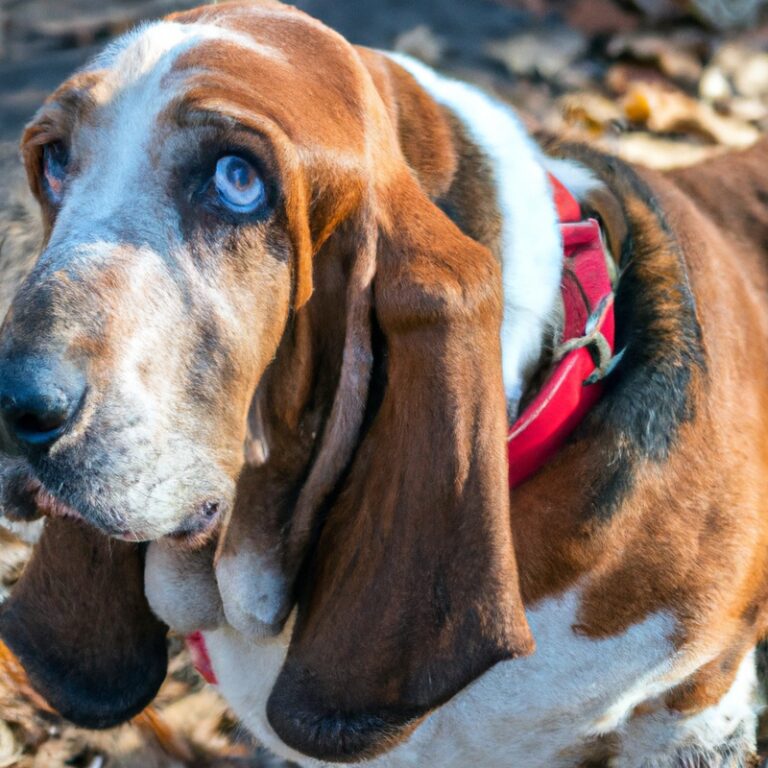What Are The Exercise Needs Of a Basset Hound Living In a Remote Wilderness Area?
Key Takeaways:
- Basset Hounds have moderate exercise needs that can be met through regular walks and interactive play sessions.
- Basset Hounds may not thrive in remote wilderness areas due to their short legs and low stamina.
- Mental stimulation is essential for Basset Hounds, so incorporating puzzle toys and training activities is important.
- Basset Hounds should be supervised during outdoor activities to prevent them from straying or getting lost in the wilderness.
Imagine a world where you and your loyal Basset Hound explore the remote beauty of the wilderness together. The untouched landscapes, the crisp air, and the sense of adventure – it’s the perfect setting for an active and fulfilling life.
But how much exercise does your furry friend really need in such an environment?
As an expert in canine fitness, I’ll guide you through the exercise requirements of Basset Hounds living in remote wilderness areas. From daily exercise needs and mental stimulation to safety precautions and adapting routines as they age, we’ll cover it all.
So, grab your leash and let’s dive into the wonderful world of exercising Basset Hounds in the wild!
| Exercise Needs | Description |
|---|---|
| Low | Basset Hounds have low exercise needs and are known for being a relatively lazy breed. They are not highly active dogs and do not require a large amount of exercise. |
| Gentle exercise | While they may not need intense exercise, Basset Hounds should still receive daily, gentle exercise to maintain their overall health and prevent obesity. |
| Leash walks | Taking Basset Hounds for leash walks is a good way to provide them with moderate exercise. They enjoy exploring their surroundings, so walking in a remote wilderness area can be a stimulating activity for them. |
| Tracking exercises | Basset Hounds have an excellent sense of smell and enjoy scent-tracking activities. Engaging them in tracking exercises can provide mental stimulation and fulfill their natural instincts. |
Exercise requirements for a Basset Hound
Daily exercise needs and recommended activities
Basset Hounds have moderate exercise needs due to their low energy levels. Daily walks are essential to keep them physically and mentally stimulated.
Aim for at least 30 minutes to an hour of exercise per day.
Engage them in low-impact activities like sniffing games, puzzle toys, and gentle playtime. Avoid excessive exercise to prevent strain on their long backs and short legs.
Monitoring their weight is also crucial, as obesity can worsen joint problems.
Considerations for Basset Hounds living in a remote wilderness area
Living in a remote wilderness area presents unique considerations for Basset Hounds. Firstly, their strong sense of smell may lead them to wander off, so it’s important to have a reliable recall command and secure fencing.
Secondly, the wilderness environment may expose them to unfamiliar wildlife and potential hazards, so supervision is crucial.
Thirdly, the weather conditions can be extreme, so providing adequate protection and shelter is essential. By addressing these considerations, you can ensure the safety and well-being of your Basset Hound in a remote wilderness area.

Mental stimulation and enrichment for Basset Hounds in a wilderness environment
Mental stimulation and enrichment are vital for Basset Hounds in a wilderness environment. To keep your Basset Hound engaged and happy, consider the following:
- Provide interactive toys and puzzles that challenge their problem-solving skills.
- Engage them in scent work by hiding treats or toys for them to find.
- Take them on different routes during walks to expose them to new smells and sights.
- Incorporate training sessions into their daily routine, teaching them new commands and tricks.
- Set up playdates with other dogs to encourage socialization and mental stimulation.
Remember, a mentally stimulated Basset Hound is a happy and well-balanced companion in the wilderness.

Ensuring safety during exercise in a remote wilderness area
Understanding the risks and challenges of remote wilderness areas
Remote wilderness areas present unique risks and challenges for outdoor activities. One of the main concerns is the lack of immediate access to medical assistance in case of emergencies.
The rugged terrain and unpredictable weather can also pose hazards.
Additionally, encounters with wildlife and potential exposure to ticks or other pests are factors to consider. It is important to be prepared and take necessary precautions when venturing into remote wilderness areas.
Recommendations for safety equipment and precautions
When exercising a Basset Hound in a remote wilderness area, it’s crucial to prioritize their safety.
Here are some recommendations for safety equipment and precautions.
- Always use a sturdy leash to keep your Basset Hound close by and under control.
- Consider using a harness instead of a collar to prevent neck strain, especially if your dog pulls or jerks suddenly.
- Carry a first aid kit with essential supplies, including bandages, antiseptic wipes, and tweezers for removing ticks or thorns.
- Invest in a reflective vest or collar to make your dog more visible, especially during low-light conditions.
- Use tick and flea preventatives to protect your dog from harmful parasites frequently found in wilderness areas.
- Bring plenty of water for both you and your Basset Hound to stay hydrated during your outdoor adventures.
- Be aware of the weather forecast and dress your dog appropriately to protect them from extreme temperatures.
- Familiarize yourself with the potential hazards in the area, such as poisonous plants or dangerous wildlife, and take necessary precautions.
Remember, safety should be a top priority when exercising your Basset Hound in a remote wilderness area.
These recommendations will help ensure a safe and enjoyable experience for both you and your furry friend.

Importance of supervision and leash training
Supervision and leash training are essential for the safety and well-being of your Basset Hound in a remote wilderness area. By closely supervising your dog, you can prevent them from getting into dangerous situations or encountering wildlife.
The leash training ensures that your dog stays close to you and prevents them from wandering too far off or getting lost.
It’s important to establish these habits early on and consistently reinforce them to ensure a safe outdoor experience for your Basset Hound.
Additional considerations for a Basset Hound in a remote wilderness area
Adequate hydration and nutrition for active Basset Hounds
To ensure adequate hydration and nutrition for your active Basset Hound, it’s important to provide fresh water at all times and keep them hydrated during exercise.
Make sure to bring a portable water bowl and offer regular water breaks during outdoor activities.
As for nutrition, choose a high-quality dog food that is specifically formulated for active dogs.
Consult with your veterinarian to determine the appropriate feeding schedule and portion sizes based on your Basset Hound’s activity level and weight.
Additionally, consider incorporating treats and supplements that support joint health and provide necessary nutrients for their overall wellbeing.
Keeping your Basset Hound properly hydrated and nourished will help them stay healthy and energetic on their wilderness adventures.
Protecting against extreme weather conditions
Protecting your Basset Hound against extreme weather conditions is essential for their safety and well-being.
During hot weather, provide shade and fresh water to prevent overheating.
Avoid exercising them during the hottest parts of the day.
In cold weather, dress them in a warm coat or sweater and consider using paw protectors to shield their paws from ice and chemicals.
Always monitor your Basset Hound for signs of discomfort or distress and adjust their environment accordingly.
Wildlife encounters and avoiding potential hazards
Wildlife encounters can be both exciting and risky for a Basset Hound living in a remote wilderness area.
To avoid potential hazards, it’s important to keep a few things in mind.
Firstly, always keep your dog on a leash to prevent them from wandering off or chasing after wildlife.
Secondly, educate yourself about the local wildlife and their behavior to anticipate any potential conflicts.
Thirdly, avoid leaving food or garbage out, as it may attract wildlife and increase the risk of dangerous encounters.
Additionally, it’s a good idea to have your dog wear a brightly colored vest or bandana to make them more visible to wildlife and other people in the area.
Monitoring the exercise routine and adapting to changing needs
Signs of overexertion and the importance of rest
It’s important to be aware of the signs of overexertion in your Basset Hound and prioritize rest for their well-being.
Look out for excessive panting, drooling, stumbling, or difficulty in breathing.
If your dog refuses to continue exercising or seems unusually fatigued, it’s time for a break.
Overexertion can lead to heatstroke, muscle strains, or joint injuries, so rest is crucial in preventing these issues.
Giving your Basset Hound sufficient rest time will help them recover and ensure they stay healthy and happy.
Regular vet check-ups and monitoring overall health
Regular vet check-ups and monitoring overall health are essential for the well-being of your Basset Hound. It’s important to schedule routine visits with the veterinarian to ensure your dog’s health is in check.
During these visits, the vet will examine your Basset Hound’s overall condition, including their weight, dental health, and any signs of underlying health issues.
Regular check-ups can help detect potential problems early on and allow for prompt treatment. Additionally, monitoring your dog’s overall health at home involves observing changes in appetite, energy levels, and behavior.
If you notice anything unusual, it’s best to consult with your vet.
Adjusting exercise routine as the Basset Hound ages
As your Basset Hound ages, it’s important to adjust their exercise routine to accommodate their changing needs.
- Keep an eye out for signs of overexertion, such as excessive panting or difficulty walking, and allow for more rest periods.
- Regular vet check-ups are crucial for monitoring their overall health and identifying any exercise limitations.
- Gradually decrease the intensity and duration of activities, opting for gentler exercises such as short walks or swimming.
- Mental stimulation through interactive toys and puzzles can help maintain their cognitive abilities.
- Remember that every dog is unique, so it’s essential to listen to your Basset Hound’s individual needs and consult with your vet for guidance.
Final Verdict
As an expert in Basset Hound care, I firmly believe that exercise is crucial for their physical and mental well-being, particularly in a remote wilderness area. Daily exercise should include both physical activities and mental stimulation to keep them happy and fulfilled.
Safety is paramount, and precautions such as using appropriate safety equipment, supervision, and leash training should be taken.
Adequate hydration, nutrition, and protection against extreme weather conditions are essential. Regular vet check-ups and monitoring their overall health are crucial.
As Basset Hounds age, the exercise routine should be adjusted accordingly.
By following these guidelines, you can ensure a fulfilling and safe exercise routine for your Basset Hound in a remote wilderness area.







